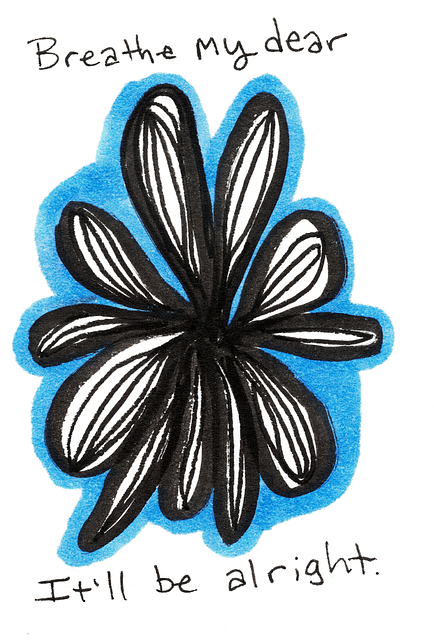Mental health professionals specializing in therapy for elders drug abuse-substance abuse face unique challenges, including complex comorbidities and resistance to treatment. To mitigate risks of stress, burnout, and vicarious trauma, therapists must navigate sensitive conversations, tailor their approach, and prioritize self-care. Effective risk management involves comprehensive risk assessment, integrated crisis intervention, and tailored evidence-based practices. Well-structured training, regular supervision, and case studies enhance safety and effectiveness, leading to improved client outcomes for elderly individuals struggling with drug abuse or self-esteem issues.
Mental health professionals working with elderly individuals struggling with drug abuse or substance misuse face unique challenges. This article delves into the critical aspect of risk assessment, exploring the specific dangers these specialists encounter in therapy settings. We provide a comprehensive overview, discussing best practices, training, and supervision to enhance safety. By examining real-world case studies focused on therapy for elders’ drug abuse, this guide offers valuable insights into effective risk management strategies.
- Understanding the Unique Risks Faced by Mental Health Professionals Working with Elderly Drug Abuse-Substance Abuse Cases
- Identifying Potential Hazards in Therapy Settings: A Comprehensive Overview
- Best Practices for Risk Assessment and Mitigation Strategies in Mental Health Care
- The Role of Training and Supervision in Enhancing Professional Safety
- Case Studies: Learning from Real-World Scenarios to Improve Risk Management in Elderly Drug Abuse Therapy
Understanding the Unique Risks Faced by Mental Health Professionals Working with Elderly Drug Abuse-Substance Abuse Cases

Mental health professionals who specialize in working with elderly clients struggling with drug abuse or substance use disorders face a unique set of challenges and risks. This demographic often presents complex needs, including comorbid mental health issues, cognitive impairments, and potential resistance to treatment due to societal stigma or past traumatic experiences. As such, therapists must be adept at navigating sensitive conversations and tailoring their approach to individual patient needs.
The nature of this work can be emotionally taxing, leading to increased stress levels and burnout risk. Professionals may experience vicarious trauma from hearing clients’ stories of addiction and its impact on their lives. Therefore, prioritizing self-care is vital, including practices like anxiety relief techniques, inner strength development through therapy or support groups, and maintaining a mental wellness journal to process emotions safely. These strategies are essential for professionals to sustain their resilience and provide the best possible care for elderly clients seeking therapy for drug abuse-substance abuse cases.
Identifying Potential Hazards in Therapy Settings: A Comprehensive Overview

In therapy settings, mental health professionals must be adept at identifying potential hazards that can significantly impact client outcomes and their own well-being. One critical area to scrutinize is the prevalence of drug abuse and substance use disorders among clients, particularly among elders who may face unique challenges due to age-related cognitive impairment or social isolation. Effective risk management planning for mental health professionals involves creating protocols to handle such sensitive issues discreetly and effectively. By integrating knowledge from mental wellness coaching programs development, practitioners can enhance their ability to recognize early signs of drug abuse and refer clients to specialized treatment centers, ensuring a holistic approach to therapy.
Moreover, navigating the complex dynamics of therapy requires professionals to be vigilant about other potential hazards, such as boundary crossings, ethical dilemmas, or unexpected client reactions. Risk management planning for mental health professionals should encompass strategies for managing crisis situations, maintaining confidentiality, and fostering a safe therapeutic environment. This proactive approach not only safeguards practitioners but also strengthens the overall quality of care provided to clients, especially those grappling with issues like drug abuse.
Best Practices for Risk Assessment and Mitigation Strategies in Mental Health Care

In the realm of mental health care, risk assessment is a best practice that goes beyond mere screening. It involves a comprehensive evaluation of clients’ psychological, social, and environmental factors to identify potential risks and triggers for relapse or crisis. For therapy for elders with drug abuse-substance abuse issues, this includes assessing cognitive function, past trauma, and access to support networks. Crisis intervention guidance should be integrated into the assessment process to ensure immediate support during high-risk periods.
Mitigation strategies are equally vital. Mental health professionals can implement evidence-based practices tailored to individual needs. This may include counseling sessions focused on coping mechanisms, stress management techniques, and referrals for specialized substance abuse treatments. In light of the dynamic nature of mental health issues, ongoing monitoring and adjustments to care plans are essential. Mental health policy analysis and advocacy play a crucial role in ensuring access to effective resources, while mental wellness podcast series production can offer additional educational tools and support for both professionals and clients.
The Role of Training and Supervision in Enhancing Professional Safety

Mental health professionals play a vital role in assisting individuals facing various challenges, from substance abuse like drug addiction among elders to issues impacting self-esteem. To ensure their safety and effectiveness, robust training and supervision are essential components of their professional journey. Well-structured training programs equip practitioners with the knowledge and skills needed to navigate complex situations, understand the nuances of different mental health conditions, and deliver compassionate care tailored to individual needs.
Regular supervision further reinforces professional safety by providing a safe space for professionals to debrief, reflect on their experiences, and receive constructive feedback. It allows them to discuss challenging cases, explore ethical dilemmas, and gain insights from experienced colleagues. This ongoing support fosters a culture of resilience, enhances self-awareness, and ultimately contributes to improved client outcomes, especially when addressing issues like drug abuse among the elderly population or working on self-esteem improvement.
Case Studies: Learning from Real-World Scenarios to Improve Risk Management in Elderly Drug Abuse Therapy

In the realm of mental health professional risk assessment, case studies serve as powerful tools to refine strategies for managing risks in therapy for elders drug abuse-substance abuse. By examining real-world scenarios, practitioners gain valuable insights into potential challenges and successful interventions. These cases highlight the importance of tailored approaches, emphasizing that one-size-fits-all solutions may not address the complex needs of elderly clients struggling with substance abuse.
For instance, case studies often reveal the effectiveness of integrating mental health education programs design focused on depression prevention and confidence boosting within addiction therapy. Such programs can mitigate risks by addressing co-occurring mental health disorders, enhancing coping mechanisms, and building resilience in this vulnerable population. By learning from these scenarios, professionals can adapt their practices, ensuring more effective risk management and improved outcomes for elderly clients seeking therapy for drug abuse.
Mental health professionals working with elderly individuals suffering from drug abuse face unique challenges and risks. By understanding these specific dangers, implementing best practices for risk assessment and mitigation, and prioritizing training and supervision, therapists can create safer environments. Integrating lessons from case studies involving therapy for elders’ drug abuse allows for continuous improvement in risk management strategies. This comprehensive approach ensures professionals are equipped to provide effective care while minimizing potential hazards in the treatment process.











